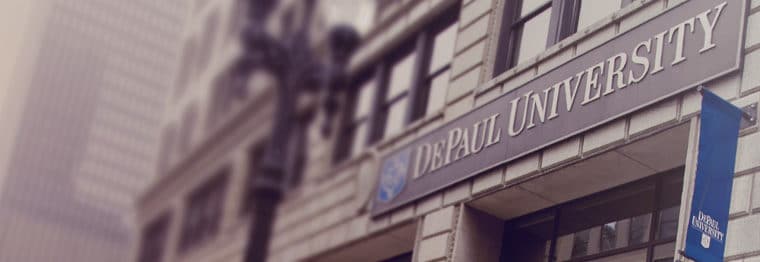 Have you ever wondered how the study of Writing, Rhetoric, and Discourse may be parleyed into a career? Perhaps you’ve questioned how Foucault’s insights will help you navigate the 21st century job market. Maybe you spent four years as a liberal arts undergrad, alternately reading great texts and answering the dreaded “what will you do with that degree?” question.
Have you ever wondered how the study of Writing, Rhetoric, and Discourse may be parleyed into a career? Perhaps you’ve questioned how Foucault’s insights will help you navigate the 21st century job market. Maybe you spent four years as a liberal arts undergrad, alternately reading great texts and answering the dreaded “what will you do with that degree?” question.
On Tuesday, March 11, DePaul’s school of Liberal Arts and Social Sciences attempted to bridge the worlds of Liberal Arts and Career Preparation with a discussion led by Student Affairs admin Matthew Rust of Indiana University-Purdue University Indianapolis. Rust’s primary argument during the talk was that the liberal arts provide students with marketable skills, such as writing, critical thinking, and complex reasoning. He stated that most employers value these types of broad skills – not necessarily specific college majors – when making hiring decisions. Rust cited studies that found that liberal arts majors better develop these skills than their professional, science, or business-degree counterparts. These abilities often translate to higher wages. Liberal arts majors outperform all but math and science majors in their peak earning ages.
Rust also mentioned another key benefit of the liberal arts. The entire enterprise is built on the freedom to study liberally, widely, or perhaps even at whim. Instead of being shuffled into a single career path, liberal arts majors have the mental skills to tackle a range of job opportunities that may change as quickly as the technology of the digital age. Rust proposed a new answer to the “what will you do with this degree?” question. His answer: (Nearly) anything you want.
